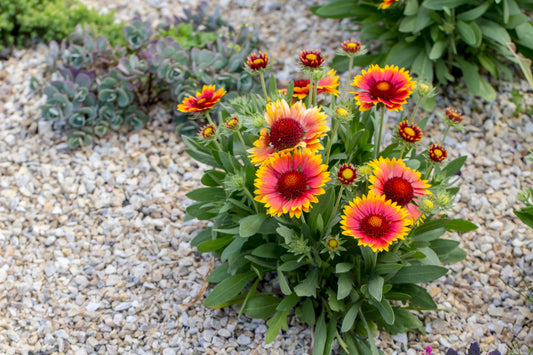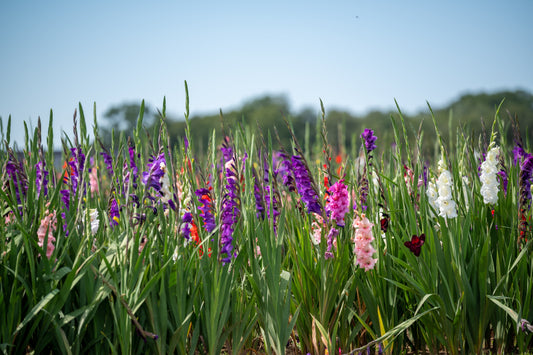Scilla Planting & Growing Guide
Planting Guide Information
-
Species dependentPlanting Depth
-
Species dependentPlanting Proximity
-
FallPlanting Season
-
Early season blooms.Plant Benefits
-
Moderate; Low in dormancyWater Quantity
-
Species dependent; Generally in SpringBloom Season
-
Full to Partial SunSunlight Quantity
-
Species dependentHardiness Zones
Additional Growing Information
Where to Plant
Plant your Scilla bulbs in a location where the soil drains well, and they will receive some sun. These resilient plants thrive in various light conditions, from full sun to partial shade to dappled shade. If you notice puddles of water 5–6 hours after a hard rain, scout out another site or amend the soil with organic material to raise the level 2–3 inches. Scilla are remarkably tolerant but require proper drainage and will not grow well in waterlogged soils.
When to Plant
For the best results, plant your Scilla bulbs sometime between mid and late fall, ideally within a month of receiving them. While they can be planted after the first frost, ensure that the ground is not yet frozen. Roots will form shortly after that, with leaves and flowers developing in the spring for most varieties.
How to Plant
- For outdoor landscape planting, find a spot where the soil drains well, and your Scilla plants will receive good light. Dig holes and plant the bulbs 3–4" deep and 4" apart at the base with the small points facing up.
- For container planting, start with good quality, well-draining potting soil and containers with adequate drainage holes. Dig holes and plant the bulbs 3–4" deep and 4" apart at the base with the small points facing up. Site your containers where they will receive good light.
- Water thoroughly, soaking the soil to settle it around the bulbs.
How to Grow
- Water as needed during active growth periods, with about 1" of moisture per week as a rough estimate.
- Leave the foliage in place after blooming has finished for the season. The leaves will gather sunlight to create food through photosynthesis, strengthening the bulb for the future.
- Remove the dry foliage when the leaves turn yellow and die back as the plants slip into dormancy around early to mid-summer.
- Allow your Scilla plants to rest for a few months before beginning their next growing cycle.
Scilla Tips & Tricks
- Pair these critter-resistant wonders with white Daffodils or Anemones for a spectacular spring display that the butterflies will love!
- Amend the soil with ground bark, decomposed manure, or compost to improve drainage and encourage a healthy start.
- Plant spring-blooming Scilla varieties in containers with other early-flowering bulbs, such as Daffodil Ice Follies or Golden Bells.
- Check individual product pages for additional light exposure information on each variety.
- Feel free to cut flowers for colorful bouquets when in bloom, as doing so will not hurt the plants.
- Use larger containers for Scilla Peruviana and plan to leave the bulbs in place for several seasons so they can develop into substantial clumps.
- Expect the foliage of Scilla Peruviana to stay green year-round, depending on your climate.
From the Family
-
Scilla - Bifolia Rosea Rosy Squill
10 Scilla BulbsRegular price $6.97Sale price $6.97 Regular priceUnit price per$9.9530% Off -
 70% Off
70% OffScilla - Peruviana Peruvian Lily
3 Scilla BulbsRegular price $8.99Sale price $8.99 Regular priceUnit price per$29.9570% Off -
 Sold out
Sold outScilla - Striped Squill Puschkinia
50 Scilla BulbsRegular price $6.99Sale price $6.99 Regular priceUnit price per$9.95Sold out






